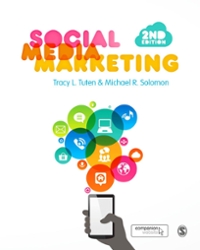The travel and tourism industry most likely has a love/hate relationship with the Internet. On the one
Question:
The travel and tourism industry most likely has a love/hate relationship with the Internet. On the one hand, the Internet can make for smarter and savvier travelers, eager to see the world. On the other hand, online travel aggregators, like Expedia and Kayak, make it harder and harder to find someone who isn’t traveling with some kind of deal in their pocket.
The Internet can “get you there” and “put you up for the night.” But when it comes time to determine what you’ll do once you get where you’re going—
whether for vacation or business—travel and tourism is shifting from business to-
consumer to consumer-to-consumer. We make informed choices on where to go and what to do when we arrive at our destination based on crowd-sourced information from friends and family, and platforms like Pinterest and Instagram.
“Traveler-generated” content is seen as more credible, more authentic, and a form of insurance in spending our vacation dollars. We want to make informed choices before we leave and during our time away. We look for real experiences to make memories and to share with the folks at home. We pay it forward when we then share our travel smarts and success with our communities. Can travel brands, destinations, and venues be credible in these conversations and use them to increase visits?
Discussion Questions 1. This is a two-prong assignment. It is a tourism challenge and it is a “choice of entertainment” challenge. Which comes first?
2. How would you set about segmenting the broad target audience of adults aged 20 to 40? Are there situational, occasion-based, or affinity groups that might emerge as priorities or low-hanging fruit?
3. How can your recommendations be as turnkey as possible for Opry and also feel “on-brand”?
Step by Step Answer:






